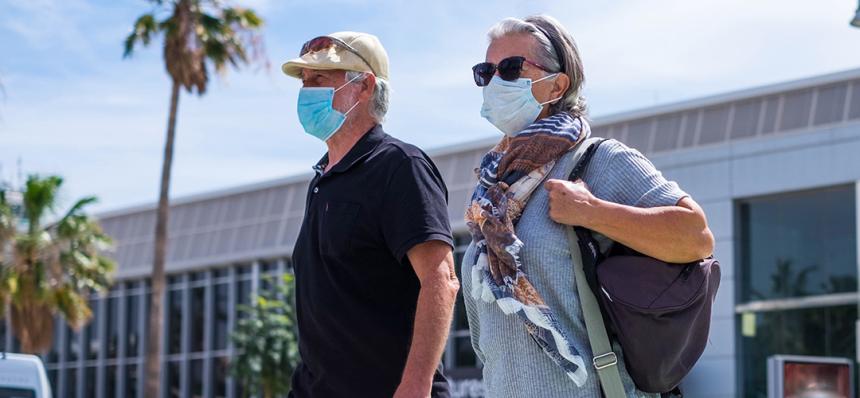Your Guide to Returning to Normal After COVID-19 Shutdown

With various states and the federal government considering easing social distancing restrictions and reopening segments of the economy, it’s important to remember that the coronavirus hasn’t gone away. That means if you’re in a high-risk group – or come into contact with people who are in a high-risk group — you still need to take substantial precautions, just as you have been for the last month or so.
Why do you need to be cautious? There is still a lot that scientists don’t know about the disease. For example, if you have had it, are you immune to it? Early studies are inconclusive. How widespread is the disease? Many people who have had the virus have never been tested, and studies show that they can spread the virus before symptoms show and even if they show no symptoms at all.
There is also no vaccine or effective treatment, and COVID-19, the disease caused by the virus, is still very dangerous.
So how do you ease back into a more normal life? Here are some tips.
Am I High Risk?
When the virus was first circulating in China, researchers believed that people over 65 and those with lung conditions, diabetes, heart disease and cancer — and any diseases that compromise the immune system — were at greater risk for developing life-threatening complications from COVID-19. This is still largely true, but new research has pointed to other risk factors, even for young people.
Obesity, especially, accounts for a high number of severe COVID-19 cases, according to new studies. People with high blood pressure have also been hit hard by complications from the disease. People who smoke are also adversely affected by the disease. And men are at greater risk. In fact, a study in New York found that 62 percent of hospitalized patients were men. Researchers aren’t sure if gender is playing a role or if the risk men face is more related to lifestyle choices they have made.
So, who is most at risk? According to the Centers for Disease Control and Prevention, it’s:
- People who are 65 or older
- People with chronic lung disease or moderate to severe asthma
- People who have serious heart conditions
- People who are immunocompromised (undergoing cancer treatment, smoking, bone marrow or organ transplantation, immune deficiencies, poorly controlled HIV or AIDS and prolonged use of corticosteroids and other immune weakening medications)
- People with severe obesity, a body mass index of 40 or higher
- People with diabetes
- People with chronic kidney disease undergoing dialysis
- People with liver disease
While being older than 65 is a risk factor, the data shows that 25 percent of Americans hospitalized with COVID-19 are under 50. It also shows that many of these younger people had conditions like asthma, hypertension and diabetes.
If you fall into a high-risk group (or even in a low-risk group) …
Before going out, talk to your doctor. Make sure you follow his or her advice. If you have a chronic condition that raises your risk, work with your doctor to make sure your numbers are good and that you’re taking your medication. Uncontrolled type 2 diabetes, for example, can make you more susceptible to infections, colds and the flu. High blood sugars can weaken your immune system.
You should also be prepared to take extra precautions. Start with these steps:
Continue to practice good hygiene. Washing your hands, wiping down surfaces and using hand sanitizer are important.
Wear a mask and wear it right. Masks haven’t been shown to offer full protection (don’t expect your mask to make you invincible), and they offer even less protection if you don’t wear them correctly.
Maintain social distancing. After spending so much time at home, the temptation to go to dinner at a restaurant or have friends over or visit relatives is high. Resist it. You can control your exposure, but it is hard to control other people’s exposure.
One thing researchers have learned is that the coronavirus spreads easily and especially in close quarters. Staying out of situations where you are exposed to people in tight confines will lower your risk.
If you can keep practicing social distancing, do it. You’ll be safer for it.
Finally, if you want to take advantage of parks, beaches and other places where people gather, go there when they are the least crowded. This is true of stores and restaurants and anywhere people gather. If you have to go out, go when things are the most quiet. This should also help lower your exposure.


